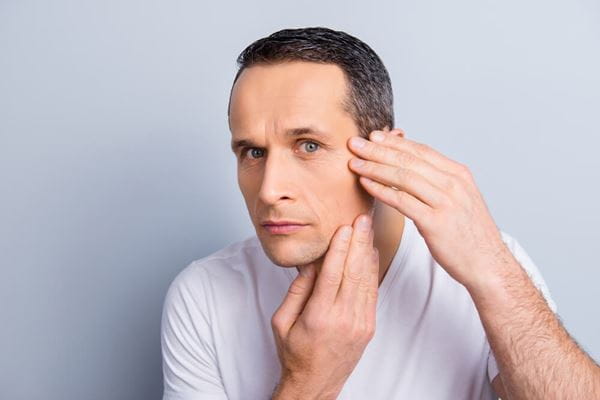Ahh, acne. That eruption of adolescent and teenaged hormones is a rite of passage for most of us. Thank goodness those pimples, blackheads and other lumps and bumps are behind you now that you’re a “grown-up.” Or are they? Between 40 and 55 percent of young adults (ages 20 to 40) are diagnosed with chronic, low-level acne, with many more experiencing the occasional flare-up. So, if adult acne has you hiding from the world, know that you’re far from alone.
What is adult acne?
Simply put, it’s acne on an adult past the age of about 24 (up until then, acne is still just a continuation of what began at puberty). Acne itself occurs when an oil gland in the skin (these are commonly known as pores) gets clogged and infected due to a buildup of oil and dead skin cells.
Who gets adult acne?
Just like in our preteens and teens, hormones typically trigger acne in adulthood, because rising hormone levels lead to enlarged oil glands and excessive oil production in the skin. Some other factors that may increase your risk include:
- Being in your 30s or 40s
- Certain medications that contain androgen (a hormone) or lithium
- Family members with acne
- Emotional stress
- Using greasy lotions or makeup
- Some underlying medical conditions
- Wearing tight clothing or fabrics that irritate the skin
- Foods high on the glycemic index (sugar and other carbs), or high in hormones (like dairy)
What can I do about my acne?
The bad news is, the same soaps, creams and gels that worked when you were a teen may not work now—and may even make your acne worse. Here are some tips for managing adult acne:
- Keep your skin clean and clear of excess oils by washing regularly with a mild soap and water.
- De-stress, using whatever method you find relaxing, like yoga, massage, a warm bath or a complete overhaul of your busy schedule.
- Avoid over-the-counter acne treatments, which can make the problem worse. People of color should especially steer clear of these products, which can cause dark spots on the skin.
- Consider using one of the many anti-aging skin treatments on the market, which contain retinoids and other ingredients that fight acne while smoothing skin.
If your acne doesn’t respond to home treatment, or if it’s having a negative impact on your self confidence, talk to your primary care physician about the possibility of recommending a dermatologist to help find a treatment approach.




